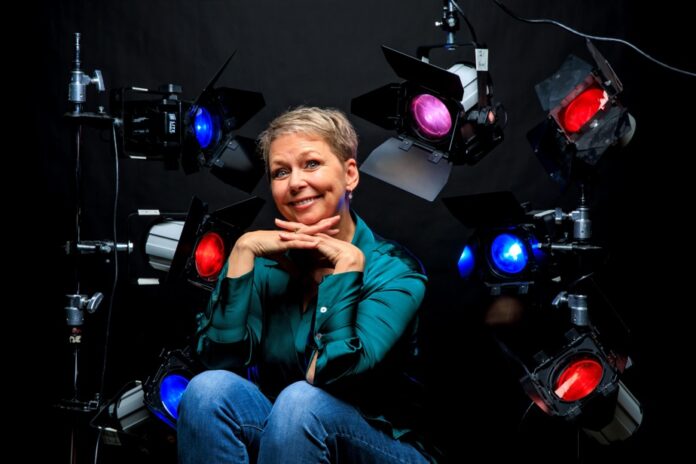Claudine Mercier was unrolling the news feed of a popular social network when she came face to face with herself. “I saw a video of one of my old numbers pop up and I was like, ‘Come on, I’m so good!’ »
Narcissist, the comedian? Completely the opposite. Being good has never been a specialty of the one whose imitations of Sonia Benezra and Lise Watier belong to the pantheon of the most memorable personifications in the history of Quebec humor.
Away from the spotlight since the end of her fifth tour in June 2018, Claudine Mercier, 62, today talks about her career “as if I were talking to you about someone else’s life”.
Withdrawing from the public space, taking a step back will have been an opportunity for her to see that everything on which her fear of never being up to it was based could go away without the Earth stopping to turn. And without happiness running away from her.
She plays in Silence, on tourne!, the play that will be released at the end of June in Saint-Jérôme, an actress and producer on the return of age, who really does not have a bad opinion of herself.
“A compositional role,” she clarifies, though the precision was not at all necessary. If she accepted this first role in the theater, it is largely in the name of her friendship for Emmanuel Reichenbach (who signs the adaptation of the text), as well as because the isolation of the pandemic will have given her more than ever the desire to see people.
But reconnecting with humor, solo? Claudine Mercier would not want to inflict such an ordeal on herself. “Over time, I realize that I don’t have the personality to do that, that I’m too insecure”, launches the one who has nevertheless sold more than 750,000 tickets in her career – her third show alone has accumulated 450 performances.
“And as you get older, everything becomes more stressful,” she says, recalling her last show, which premiered lukewarmly, and for which she only sold 40,000 tickets, the “that” being here. very relative, although Claudine couldn’t help but see in it the sign of a decline in interest.
“In retrospect, I realize that it is difficult for an artist to find the right balance between renewing themselves and not disappointing your audience. And the attraction of novelty is part of life, that’s normal. Now it’s the turn of other comedians to shine. »
Claudine Mercier may use the pretext of “being rusty in terms of public representation”, she does not need to be asked, throughout our interview, to take the voice of one of her muses – Sonia, Lise, Ginette Reno – from to pronounce his name. An irrepressible talent that will have triumphed over all these years of her great shyness or what she calls a “lack of guts”.
Your journalist points out to her that for a woman who lacked guts, she is certainly one of the most popular figures of Quebec humor of the 1990s and 2000s. She raises her eyebrows.
Claudine Mercier has never been the type to rush under the light, but rather one who is pushed towards the stage. It was her friends from Artishows, the vocal group she formed with Chantal Lamarre, Widemir Normil and FM Le Sieur, who insisted that she take part in Cégeps en spectacle in 1980 (she lost in the provincial final to Martine St- Clear).
After studying theater at UQAM, she quickly realizes that she does not have the patience or the confidence to wait for an audition. She turned to the Just for Laughs School, under the guidance of Jean-Marc Parent.
The art of imitation was already, at the time, taken from above, she recalls. “For the other comedians, it was cheesy, easy. Even when I was accepted at the School, I was told that normally we didn’t accept an imitator, but that since I was a woman, they were going to take a chance with me. »
Be a woman. In each interview, the proverbial subject of women in humor will have constantly resurfaced, not because its interlocutors cared about fairness, but because the absurd idea that women are intrinsically less funny than men still counted for a lot of followers.
If she had to develop a new one-woman-show – she presses the if – it would certainly be about the environment and the Atacama desert in Chile, in which the West pours the excesses of fashion at a discount. Citizen concerned about the planet, Claudine Mercier knows that we would all benefit from shedding our load, in the name of the future, and perhaps also our own serenity.
“Fast fashion is the perfect example of a business that complicates our lives for nothing,” she laments. You spend your life wanting to be like everyone else, wanting to have lots of stuff, and then you get to 60 and you think, what do I do with all this? Does all of this really make me happier? »















